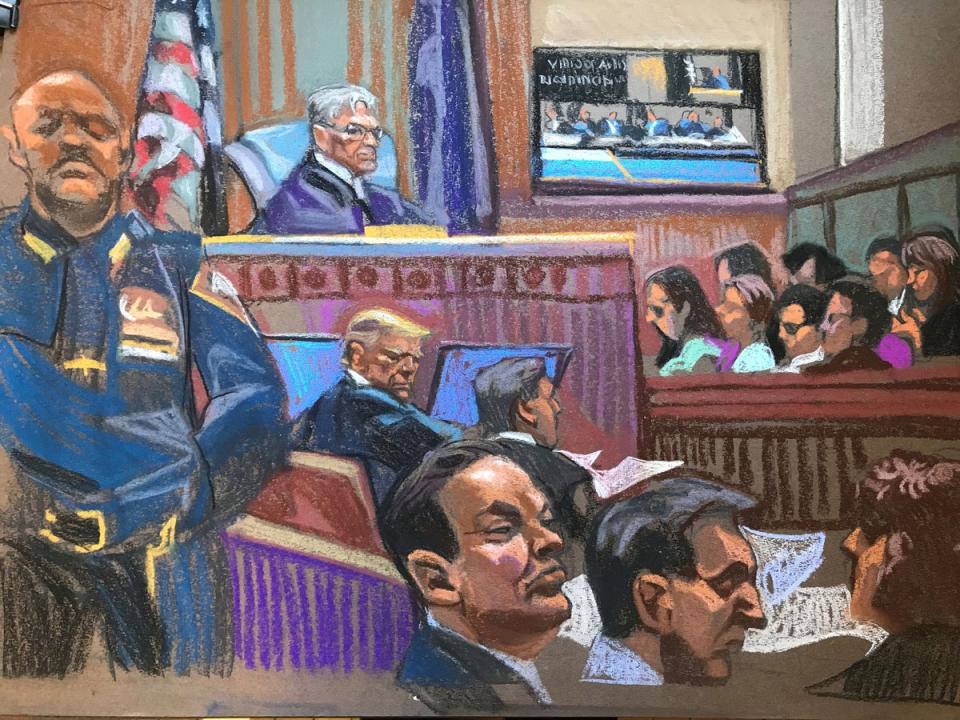Why is Trump’s New York hush money trial not taking place on Wednesdays?
Donald Trump became the first sitting or former president in American history to face a criminal trial this week when Manhattan district attorney Alvin Bragg’s hush money case against him finally commenced in New York City.
Mr Trump was indicted by Mr Bragg last year on 34 felony counts relating to the falsification of business records in October 2016 to allegedly conceal a $130,000 payout made to the adult film star Stormy Daniels to ensure her silence over a sexual encounter she claims the pair had a decade earlier.
The charges on their own are misdemeanours but have been elevated to felonies because Mr Bragg argues that they violate state and federal election laws.
Mr Trump denies the affair with Ms Daniels and has pleaded not guilty on all counts.
So far this week, Judge Juan Merchan has established with the prosecution and defence what evidence will be admissible in his courtroom, seven jurors have been chosen out of the 18 needed (12, plus six substitutes), with many more Manhattanites dismissed after being scrutinised over their suitability for the role.
Mr Trump, for his part, has been admonished twice by the justice and seemingly fell asleep once, although he denies that too.
On Wednesday, however, Judge Merchan’s court stands in darkness, with the jury selection process not due to resume until Thursday. Why?
The answer is that the justice has stipulated that Wednesdays should be kept free to allow everyone a break and for him to attend to other business relating to the other cases with which he is currently involved, which is common practice in major legal cases of this type.

Judge Merchan has said that he will only allow proceedings to go ahead on Wednesdays in the event that additional time is needed to make up for any unforeseen “excessive delays” that might arise when the trial really gets into the swing of things from next week.
Mr Trump, in particular, is expected to welcome the midweek reprieve given that the expectation that he spend four days per week for the next six to eight weeks sitting quietly in court is likely to place a unique strain on his patience.
The Republican presidential candidate has already complained, among many other grievances about the trial, that the requirement that he attend proceedings in person prevents him from campaigning for the White House, insisting that the whole affair amounts to “election interference” and “lawfare” orchestrated by political enemies, rather than simply the wheels of justice grinding slowly but surely into gear.
He has already moaned that Judge Merchan’s expectations about his attendance in court will mean that he will miss out on his son Barron Trump’s high school graduation ceremony later this month, although the justice did not say definitively that he would not be allowed a day off to attend that event, merely that a ruling would have to wait until nearer the time.
Meanwhile, Mr Trump’s attorney Todd Blanche has stressed to Judge Merchan that the Trump campaign “has taken pains” to organise events and rallies that his client can attend on Wednesdays in the hope of ensuring that the day remains free so as not to jeopardise his election prospects any further.


